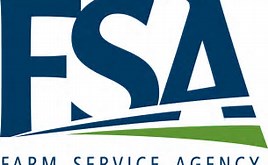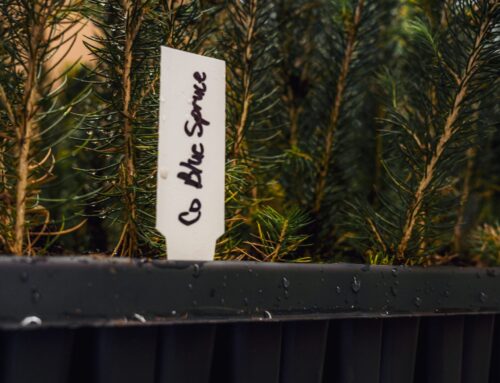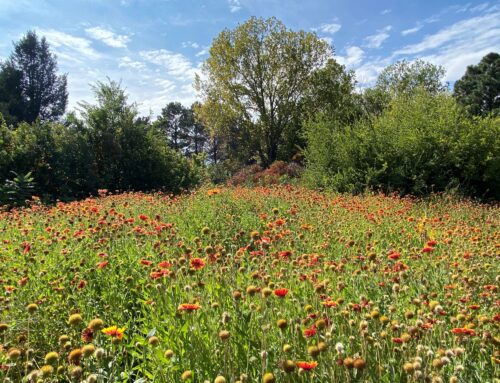Breaking New Ground
Plowing up grass without first contacting the USDA Service Center can jeopardize payments.
Agricultural producers are reminded to consult with FSA and NRCS before breaking out new ground for production purposes as doing so without prior authorization may put a producer’s federal farm program benefits in jeopardy. This is especially true for land that must meet Highly Erodible Land (HEL) and Wetland Conservation (WC) provisions.
Producers with HEL determined soils are required to apply tillage, crop residue and rotational requirements as specified in their conservation plan.
Producers should notify FSA as a first point of contact prior to conducting land clearing or drainage type projects to ensure the proposed actions meet compliance criteria such as clearing any trees to create new cropland, then these areas will need to be reviewed to ensure such work will not risk your eligibility for benefits.
Landowners and operators complete the form AD-1026 – Highly Erodible Land Conservation (HELC) and Wetland Conservation (WC) Certification to identify the proposed action and allow FSA to determine whether a referral to Natural Resources Conservation Service (NRCS) for further review is necessary.
Conservation Reserve Program Reminders – Mid-Contract Management Activities due by March 14.
Contact FSA or NRCS for Specifications
Weld County CRP participants have been notified by a post card reminding them that they have management activities to be completed. All (100%) of the CRP contract acreage must have a contract management activity performed by the end of year 6 of the contract. For those producers who are having the acreage lightly disked or inter-seeded then that deadline in March 14 of the sixth year.
All CRP maintenance activities, such as burning, disking and spraying, must be conducted outside the primary nesting or brood rearing season for wildlife, which for Colorado is March 15 through July 15. However, spot treatment of the acreage may be allowed during the primary nesting or brood rearing season if, left untreated, the weeds, insects or undesirable species would adversely impact the approved cover. In this instance, spot treatment is limited to the affected areas in the field and requires County Committee approval prior to beginning the spot treatment. The County Committee will consult with NRCS to determine if such activities are needed to maintain the approved cover.
Annual mowing of CRP for generic weed control, or for cosmetic purposes, is prohibited at all times.
All ground disturbance, or light disking, and any inter-seeding must be completed prior to the March 15, too.
If any CRP participant has completed such contract management activity, they can submit receipts for cost-share assistance.
USDA Processing Pending Conservation Reserve Program Continuous Enrollment Offers
Acceptance of Most 2018 CRP Offers Temporarily Suspended
USDA’s Farm Service Agency (FSA) will temporarily suspend accepting most new Conservation Reserve Program (CRP) offers until later in the 2018 fiscal year.
FSA is temporarily suspending acceptance of most offers going forward to provide time to review CRP allocation levels, and to avoid exceeding the statutory cap of 24 million acres. The CRP acreage cap is a provision of the 2014 Farm Bill. Pollinator acreage offers are being declined because the program has met its acreage enrollment goal. Effective immediately, USDA is suspending acceptance of all new CRP continuous offers. However, FSA will continue to accept eligible offers for state-specific Conservation Reserve Enhancement Program (CREP) and CRP Grasslands enrollment.
Weld FSA News
USDA Farm Service Agency Offers Text Alerts to Weld County Producers
Subscribe Can Receive Important Reminders by Text
Weld County USDA Farm Service Agency (FSA) Executive Director Jeff Wilson announced that farmers and ranchers in Colorado now can receive notifications from their county office through text messages on their cell phone.
Please consider enrolling by texting COWeld to FSANOW (372669) to subscribe to text alerts from Weld County. Standard text messaging rates apply. Contact your wireless carrier for details associated with your particular data plan. Participants may unsubscribe at any time.
ARC/PLC Signup Underway
Ag Risk Coverage and Price Loss Contracts Need Enrolled
Producers are encouraged to call the Weld County Farm Service Agency and set up an appointment to enroll their farms for 2018. This is the last year for enrollment under the 2014 Farm Bill.
Approximately 60% of the farms are enrolled. If you are one of the 40% act now so you do not miss potential payments due to poor market prices.
Please contact the Weld FSA office at (970) 356-8097 extension 2 for an appointment.
2018 Livestock Losses
Death loss due to adverse weather can be covered by the LIP.
It is that time of year when calving and lambing activities are beginning and oftentimes winter storms arrive causing death loss to the newborn. The Livestock Indemnity Program (LIP) provides assistance to eligible producers for livestock death losses in excess of normal mortality due to adverse weather and attacks by animals reintroduced into the wild by the federal government or protected by federal law. LIP compensates livestock owners and contract growers for livestock death losses in excess of normal mortality due to adverse weather, including, losses due to: hurricanes, floods, blizzards, wildfires, extreme heat or extreme cold.
For 2018, eligible losses must occur on or after Jan. 1, 2018, and no later than 60 calendar days from the ending date of the applicable adverse weather event or attack. A notice of loss must be filed with FSA within 30 days of when the loss of livestock is apparent.
Participants must provide the following supporting documentation to their local FSA office no later than 90 calendar days after the end of the calendar year in which the eligible loss condition occurred.
- Proof of death documentation
- Copy of growers contracts
- Proof of normal mortality documentation
USDA has established normal mortality rates for each type and weight range of eligible livestock,
Colorado Beef Cows = 3% and baby calves = 4%, Ewes = 6% and baby lambs = 7%, Nannies = 6% and kids = 11%. These established percentages reflect losses that are considered expected or typical under “normal” conditions. Producers who suffer livestock losses in 2018 must file both of the following:
- A notice of loss the earlier of 30 calendar days of when the loss was apparent
- An application for payment by March 31, 2019.
Additional Information about LIP is available at your local FSA office or online at: www.fsa.usda.gov.
Federal crop insurance coverage is sold and delivered solely through private insurance agents. Agent lists are available at all USDA Service Centers or at USDA’s online Agent Locator: http://prodwebnlb.rma.usda.gov/apps/AgentLocator/#. Producers can use the USDA Cost Estimator, https://ewebapp.rma.usda.gov/apps/costestimator/Default.aspx, to predict insurance premium costs.
For more additional information on LIP contact the Weld County FSA office at (970) 356-8097 or visit the web at https://www.fsa.usda.gov/Assets/USDA-FSA-Public/usdafiles/FactSheets/2017/lip_fact_sheet_oct2017.pdf
USDA Makes it Easier to Transfer Land to the Next Generation of Farmers and Ranchers
Allows for Transfer of Certain Conservation Reserve Program Land to New Farmers
U.S. Department of Agriculture (USDA) is offering an early termination opportunity for certain Conservation Reserve Program (CRP) contracts, and making it easier to transfer property to the next generation of farmers and ranchers, including family members. The land that is eligible for the early termination is among the least environmentally sensitive land enrolled in CRP.
Normally, if a landowner terminates a CRP contract early, they are required to repay all previous payments plus interest. The new policy waives this repayment, if the land is transferred to a beginning farmer or rancher through a sale or lease with an option to buy. With CRP enrollment close to the Congressionally-mandated cap of 24 million acres, the early termination will also allow USDA to enroll other land with higher conservation value elsewhere.
Acres terminated early from CRP under these land tenure provisions will be eligible for priority enrollment consideration into the CRP Grasslands, if eligible, or the Conservation Stewardship Program or Environmental Quality Incentives Program, as determined by the Natural Resources Conservation Service.
According to the Tenure, Ownership and Transition of Agricultural Land survey, conducted by USDA in 2014, U.S. farmland owners expect to transfer 93 million acres to new ownership during 2015-2019. This represents 10 percent of all farmland across the nation. Details on the early termination opportunity were available starting January 9, 2017. For more information about CRP and to find out if your acreage is eligible for early contract termination, contact your local Farm Service Agency (FSA) office or go online at www.fsa.usda.gov/crp or https://www.fsa.usda.gov/Internet/FSA_Notice/crp_841.pdf
Weld County NAP and Risk Protection Coverage Sales Deadlines
Purchase of coverage prior to the sales closing date, provides safety net in the event of a crop disaster.
The USDA Farm Service Agency (FSA) reminds producers to review available USDA crop risk protection options, including federal crop insurance and Noninsured Crop Disaster Assistance Program (NAP) coverage, before the applicable crop deadlines.
Federal crop insurance covers crop losses from natural adversities, such as: drought, hail and excessive moisture. NAP covers losses from natural disasters on crops for which no permanent federal crop insurance program is available, including: perennial grass forage and grazing crops, fruits, vegetables, mushrooms, floriculture, ornamental nursery, aquaculture, turf grass, ginseng, honey, syrup, bioenergy, and industrial crops.
The following crops in Weld County have 2018 NAP & Crop Insurance deadlines of:
- February 1, 2018 – Onions, Scallions, Shallots
- March 15, 2018 – Dry Beans, Green Beans, Beets, Broccoli, Cabbage, Cantaloupe, Carrots, Cauliflower, Corn, Sweet Corn, Cucumbers, Eggplant, Flowers, Gourds, Grain Sorghum, Greens, Herbs, Honeydew, Leeks, Lentils, Lettuce, Millet, Oats, Okra, Peas, Peppers, Potatoes, Pumpkins, Quinoa, Radishes, Rapeseed, Safflower, Sorghum Forage, Soybeans, Squash, Strawberries, Sugar Beets, Sunflowers (oil & non-oil), Sweet Potatoes, Tomatillos, Tomatoes, Turnips, Watermelons and any other spring or summer planted crop not listed above.
Producers can determine if crops are eligible for federal crop insurance or NAP by visiting https://webapp.rma.usda.gov/apps/actuarialinformationbrowser2017/CropCriteria.aspx.
NAP basic coverage is available at 55 percent of the average market price for crop losses that exceed 50 percent of expected production. With higher levels of coverage, up to 65 percent of their expected production at 100 percent of the average market price, including coverage for organics and crops marketed directly to consumers.
Additional information can be obtained regarding service fees and premiums by reading the fact sheet which is located at https://www.fsa.usda.gov/Assets/USDA-FSA-Public/usdafiles/FactSheets/2017/nap_for_2015_and_subsequent_years_oct2017.pdf




